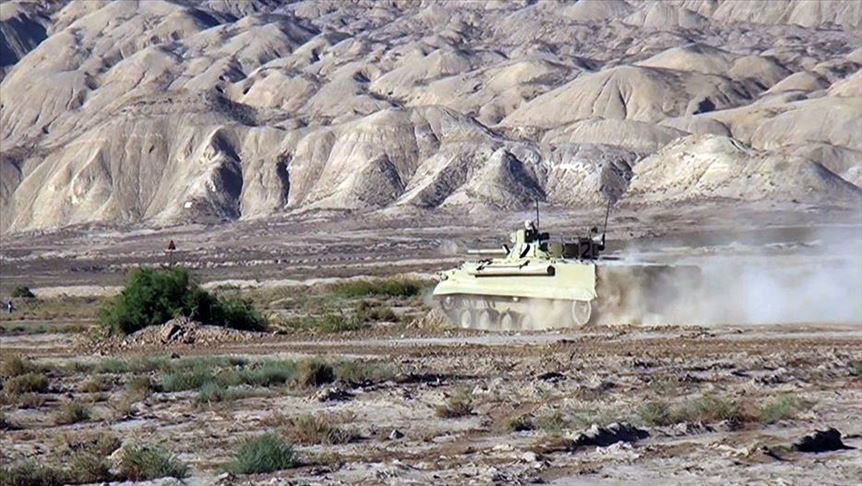Mideast, Asia alarmed over Armenia-Azerbaijan conflict
Iran, Kazakhstan and Pakistan deeply concerned over escalating clashes between two sides in occupied Nagorno-Karabakh

TEHRAN, Iran/NUR-SULTAN, Kazakhstan
Middle East and Asian countries expressed concern Sunday over escalating hostilities after Armenian forces shelled Azerbaijani military and civilian positions in the occupied Upper Karabakh, or Nagorno-Karabakh region.
Iran called on Azerbaijan and Armenia to end the conflict and start talks.
Tehran is keeping a close watch on the conflict with concern, said Foreign Ministry spokesman Saeed Khatibzadeh.
Iran is ready to use all its capacities to establish a cease-fire and start talks between the two sides, Khatibzadeh noted.
Pakistan threw its weight behind Azerbaijan following Armenia’s border violations and attacks in Upper Karabakh.
"Pakistan stands with the brotherly nation of Azerbaijan and supports its right of self-defense," the Foreign Ministry said in a statement.
"We support Azerbaijan’s position on Nagorno-Karabakh, which is in line with several unanimously adopted UN Security Council resolutions," it added.
Kazakhstan called on Yerevan and Baku to end the conflict, the country’s Foreign Ministry said in a statement.
Expressing its deep concern, the ministry said Nur-Sultan urges the two countries to take all measures to stabilize the situation and start a dialogue.
Kazakhstan's international organizations are also ready to help in seeking peaceful ways to end the conflict, the statement added.
Border clashes broke out early Sunday after Armenian forces targeted Azerbaijani civilian settlements and military positions in the occupied Upper Karabakh region.
Relations between the two former Soviet nations have been tense since 1991, when the Armenian military occupied Upper Karabakh, or Nagorno-Karabakh, an internationally recognized territory of Azerbaijan.
Four UN Security Council and two UN General Assembly resolutions as well as many international organizations demand the withdrawal of the occupying forces.
The OSCE Minsk Group – co-chaired by France, Russia and the US – was formed in 1992 to find a peaceful solution to the conflict, but to no avail. A cease-fire, however, was agreed upon in 1994.
France, Russia and NATO, among others, have urged an immediate halt to clashes in the occupied region.
*Aamir Latif contributed from Karachi, Pakistan
Anadolu Agency website contains only a portion of the news stories offered to subscribers in the AA News Broadcasting System (HAS), and in summarized form. Please contact us for subscription options.







